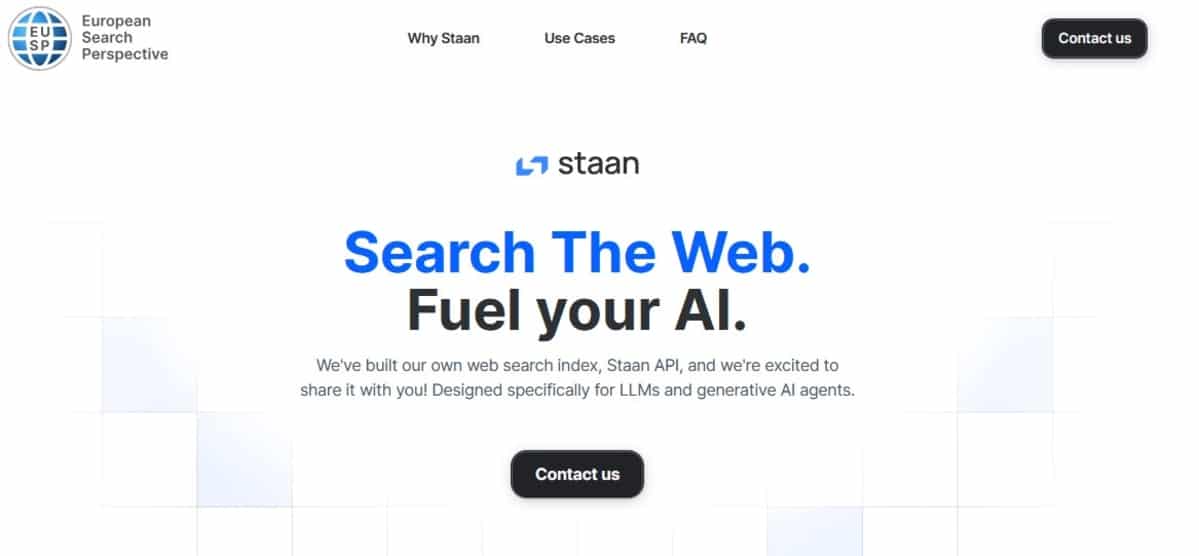Have you ever wondered what it’d feel like to pry Google’s grip off the search bar? To be honest, I have—countless times. And now, Qwant and Ecosia have teamed up to build something audaciously European: Staan, a search index designed to challenge the U.S. and Chinese giants. It sounds bold, maybe a tad quixotic, but it’s exactly the kind of shake-up the web needs.
Why Europe Needed Its Own Search Index
Remember that sinking feeling when a single company dictates what you see online? That’s the reality most of us accept—until a fresh alternative pops up. Qwant, the French privacy warrior, and Ecosia, the German tree-planter with a conscience, realized they’re both using Big Tech under the hood. It’s a bit like building a “green” car that still runs on fossil fuel—counterintuitive, right?
So they said, “Enough.” In 2024, they formalized their partnership under the catchy name European Search Perspective (EUSP), aiming to create a homegrown index. Their mission? Serve roughly half of all French queries and one-third of German searches by year’s end. It feels almost too optimistic. But hey, high ambitions often spark real change.
Building Blocks of the European Search Perspective
I spent a morning noodling over how they pulled this off. Here’s the skinny:
- A joint venture structure that’s part non-profit ethos, part startup sprint.
- Data centers rooted in Europe, governed by GDPR’s strictest privacy rules.
- An index architecture that’s modular, so it can slot into apps, chatbots, and AI tools without breaking the bank.
Speaking of cost, Ecosia’s CEO, Christian Kroll, didn’t mince words: “Our index can offer power search features at a tenth of the cost.” Imagine adopting search for your AI project and cutting your bill by 90%. Sound too good to be true? Probably—but even if it’s half that, it still moves the needle.
A Cheaper, More Private Foundation
Cost savings are nice, yes, but privacy is the real headline here. Qwant prides itself on never tracking you. Combine that reputation with Europe’s iron-clad regulations, and you’ve got a recipe for a search engine that genuinely respects your data—no tracking cookies, no creepy ad profiles. It’s refreshing, if you ask me, to see a search tool that doesn’t double as a data vacuum.
(And if you’re thinking, “But American companies have their own privacy frameworks,”—sure, but can they rival the GDPR? I’m skeptical.)
Powering AI with Staan
Here’s where the plot thickens: AI chatbots. We all know ChatGPT and its cousins rely on web search to ground facts. Most devs pull from Google or Bing—and pay for the privilege. EUSP is pitching Staan as the scrappy upstart that does the same grunt work at a fraction of the cost, while maintaining privacy.
Will AI builders bite? If you’re bootstrapping a chatbot and your budget’s tighter than a drum, I’d at least give Staan a test drive. You might discover you don’t need Big Tech’s deep pockets to fuel your next big idea.
Why the US Should Care
You might be thinking: “This is Europe’s problem, not mine.” But consider this: the internet’s backbone is global. When one region breaks free from the clutches of monopolies, it nudges the rest of us toward better options.
Plus, you value privacy, right? Studies show Americans are increasingly wary of surveillance capitalism. (I know I am.) Having another choice—one untainted by ad-tech giants—isn’t just nice. It’s necessary. And who knows? Maybe U.S. regulators will wake up and loosen antitrust shackles once they see Staan’s traction.
A Glimpse into Europe’s Tech Sovereignty Push
There’s a bigger story here: digital independence. Post-2024 election jitters reminded Europe how reliant it still is on American cloud and AI stacks. From newsrooms to climate researchers, entire sectors dance to Silicon Valley’s tune. EUSP, alongside outfits like Proton, is unapologetically building a stack that’s European through and through. If they succeed, Staan could become a symbol—not just a search tool, but a statement of autonomy.
Rough Edges and Open Questions
Let’s be candid: no startup is perfect at launch. Can Staan compete on raw relevance and speed? Will app developers trust a fledgling index? How steep is the learning curve for integration? These are the questions keeping me up at night. But hey, every revolution starts with an experiment.
Ready to ditch the usual suspects? To give your privacy and your wallet a break? I’m no clairvoyant, but I’m intrigued—maybe even a little hopeful. And that, in itself, feels like progress.
What do you think—will Staan stick around, or fizzle out? Drop your thoughts below, share this post with someone who’s ready for an alternative.
Don’t forget to read our piece on how Reddit is also trying to challenge Google. And follow us on Facebook, X (Twitter), or LinkedIn for more deep dives into the future of search.
Sources:
- www.techcrunch.com/2025/08/06/qwant-and-ecosia-debut-staan-a-european-search-index-that-aims-to-take-on-big-tech/
- www.scalevise.com/resources/staan-european-search-engine/



Do You Still Need a Website in 2026? Google’s Search Team Weighs In
Google Dominance Grows in Azerbaijan as Yandex Market Share Slumps